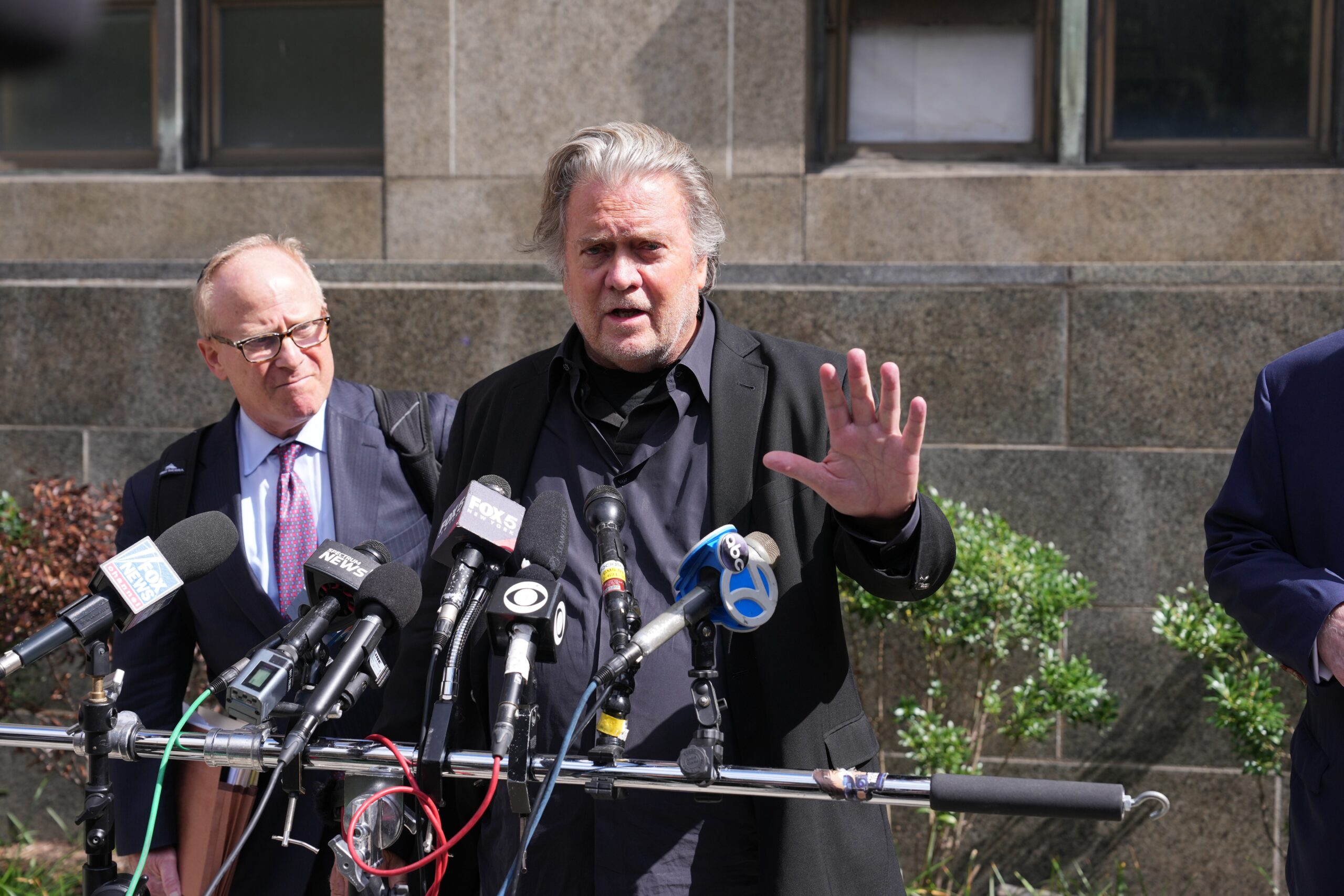Ally No More? Will Korea CHOOSE China?

Steve Bannon raises alarm bells as South Korea’s new left-wing leader openly opposes Trump’s tariff policies, potentially pushing a key U.S. ally toward China’s sphere of influence.
At a Glance
- Steve Bannon criticized the Trump administration for ignoring South Korea’s significant political shift
- South Korea elected left-wing leader Lee Jae-myung who won with nearly 49% of the vote
- Lee openly opposes Trump’s tariffs that impact South Korean automotive and technology industries
- Bannon warns South Korea may delay trade deals and improve relations with China instead
- This political realignment could have major consequences for U.S. strategic interests in Asia
Bannon Sounds Alarm on South Korean Political Shift
Former White House strategist Steve Bannon has issued a stark warning about deteriorating U.S.-South Korea relations amid tensions over trade policies. Bannon criticized both the State Department and White House for failing to pay attention to South Korea’s significant political transformation following the election of left-wing leader Lee Jae-myung, who secured victory with nearly 49% of the vote. This political shift could have far-reaching consequences for American strategic interests in Asia.
According to Bannon, the administration’s lack of focus on South Korea’s changing political landscape represents a serious oversight with potential long-term ramifications. Lee’s election victory wasn’t marginal—it was decisive enough to provide a clear mandate for his policy positions, which include open frustration with Trump’s tariff strategies. The substantial vote share indicates strong domestic support for a potential realignment of South Korea’s international relationships.
Tariff Policies Creating Friction
At the heart of the growing tension are Trump’s tariff policies, which have directly impacted key South Korean industries. South Korea stands as a major exporter of automobiles and smartphones to the United States, sectors specifically targeted by recent and proposed tariff increases. These economic measures have created friction with an ally that has traditionally maintained strong ties with America, both economically and militarily.
The newly elected South Korean president has made his position clear, viewing the tariffs as harmful to his country’s economic interests. This stance represents a significant shift from previous administrations that worked to maintain harmonious trade relations with the United States despite occasional disagreements. Lee’s more confrontational approach signals a potential sea change in bilateral relations that could extend beyond trade issues.
Strategic Realignment Concerns
Bannon’s most alarming warning concerns South Korea’s potential pivot toward China. He suggested that in response to trade tensions with the United States, South Korea might delay or reconsider prospective trade agreements while simultaneously improving relations with Beijing. Such a development would represent a significant geopolitical victory for China and a corresponding loss of American influence in a strategically vital region.
South Korea has historically served as a crucial American ally in Asia, hosting U.S. military bases and cooperating on regional security concerns, particularly regarding North Korea. Any erosion of this relationship could destabilize regional power dynamics and complicate America’s strategic position. The implications extend far beyond economic considerations, potentially affecting security arrangements that have underpinned stability in Northeast Asia for decades.
Broader Implications for U.S. Foreign Policy
Bannon emphasized that the consequences of this oversight could be severe for Trump’s broader foreign policy objectives. South Korea represents not just an economic partner but a pivotal strategic ally in containing North Korean aggression and balancing Chinese influence in the region. The potential realignment of South Korea’s international relationships would represent a significant setback for American interests in Asia.
The situation highlights the complex interplay between trade policies and international relations. While tariffs may serve domestic economic and political purposes, they can simultaneously strain alliances and create unintended strategic consequences. As South Korea potentially reconsiders its position in the regional power structure, American policymakers face difficult choices in balancing economic priorities against broader strategic considerations.












